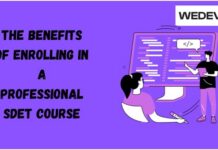The Joint Entrance Examination is primarily an all India based examination which is aimed at testing and selecting candidates for multiple engineering colleges across the country. It has two levels – JEE Main and JEE Advanced. JEE Advanced is more intricate than JEE Main and eligibility for this level includes clearing JEE Main. Institutes that hold admissions based on JEE include 23 IITs – Indian Institute of Technology, 31 NITs – National Institute of Technology, 25 IIITs – Indian Institute of Information Technology and many other prestigious engineering colleges and institutes. There are two eligibility criteria that the students need to clear – age and state of eligibility.


Syllabus of JEE Main
- Paper 1 (B.E. and B.Tech) – Subjects included in this exam are Mathematics, Physics and Chemistry.
- Topics under Mathematics include Sets and Relation, Functions, Complex Numbers, Quadratic Equations, Mathematical Induction, Binomial Theorem, Arithmetic Progression, Geometric Progression, Harmonic Progression, Matrices and Determinants, Permutations and Combinations, Continuity and Differentiability (Limits), Calculus, 2 and 3 Dimensional Geometry, Differential Equations, Vectors, Statistics, Probability, Trigonometry
- Physics topics – Kinematics, Work Energy Power, Rotational Motion, Laws of Motion, Solid and the Liquid States, Gravitation, Electrostatistics, Thermodynamics, Gaseous State, Current Electricity, Oscillations and Waves, Magnetism, Electromagnetism, Nature of Matter, Nature of Radiation, Optics, Atomic and Nucleic Structures, Practical Experiments, Communication Devices and Systems, Electronic Device Systems
- Chemistry topics – Matter and its states (solid, liquid and gas), Structure of Atom, Molecular Bonding and Structure, Thermodynamics, Types of Solutions and their Properties, Electrochemistry, Equilibrium, Chemical Kinetics, Chemistry of Surface Phenomena, Inorganic Chemistry, Organic Chemistry
- Paper 2 (B.Arch) – Subjects included are Mathematics and Aptitude.
- Mathematics topics – Sets and Relation, Functions, Complex Numbers, Quadratic Equations, Mathematical Induction, Binomial Theorem, Arithmetic Progression, Geometric Progression, Harmonic Progression, Matrices and Determinants, Permutations and Combinations, Continuity and Differentiability (Limits), Calculus, 2 and 3 Dimensional Geometry, Differential Equations, Vectors, Statistics, Probability, Trigonometry
- Aptitude – This category has 3 subparts. Physical awareness about surroundings, three-dimensional understanding and drawing are all part of this category.
- Part 2B (B.Planning) – Subjects included are Mathematics, Aptitude and Planning.
- Mathematics topics – Sets and Relation, Functions, Complex Numbers, Quadratic Equations, Mathematical Induction, Binomial Theorem, Arithmetic Progression, Geometric Progression, Harmonic Progression, Matrices and Determinants, Permutations and Combinations, Continuity and Differentiability (Limits), Calculus, 2 and 3 Dimensional Geometry, Differential Equations, Vectors, Statistics, Probability, Trigonometry
- Aptitude – Physical awareness about surroundings, three-dimensional understanding and drawing.
- Planning – General understanding, social sciences, thinking capacity and skills.
The syllabus for JEE Advanced is the same as that of JEE Main but the level of difficulty increases drastically and the value of the application is more.
Strategy for Effective JEE exam results
- Know the syllabus well – To aid the candidates in getting more in-depth knowledge about the syllabus, NTA puts out the long form of the syllabus. All topics and their subtopics are mentioned clearly so that nothing is left unstudied. Out of all the topics, some hold more weightage and gravity than the others. It is essential to trace out these exact topics and focus more on them. A more foolproof approach is to categorise the syllabus as class 11th and class 12th syllabus. This will not only help in remembering the content distinctly but also provide mental clarity. The next step is to order them based on the difficulty they pose. Studying the things that you find difficult first will give you more time to focus on them.
- Know the exam pattern well – It is important to know the relative pattern of the question paper so that one is mentally prepared and knows what to expect. Thorough knowledge of the marking scheme also can help you answer the paper better. Go in for the heavily marked questions first and get over them. You can refer to the JEE Main 2020 Question Paper PDF to get a better idea of the exam pattern.
- Mock tests – The process of answering correctly and with a decent pace comes slowly so constant practice is needed. Solve previous years’ question papers and do mock tests simultaneously so that you gradually build that speed and increase your attention span. It is all about making a habit and then repeating it till you perfect it.
- Time management – The most dominant factor is efficient time management. Knowing when to study what and how much to study daily will help you keep a peaceful mind and not lose focus too soon. The syllabus seems to be extensive but preventing yourself from over studying in one go is key. Over working your brain can have long term effects like low retention, low focus and being in no mood to study.
Action plan
- Studying a topic and understanding the fundamental concepts.
- Making short notes and highlighting salient features of the topic
- Checking to see how much retention has occurred after each topic. The best way to do this is to close the book and start visualising every aspect of the topic and its consequent characteristics.
- Indulging in solving practice questions and MCQs for objective recollection. This will help in the instant revision process which will help in the long run. Before you see the answers and the working of the questions, try solving them yourself for as long as you can.
- Give mock tests to combine the studying with a fast pace. Since the exam is time bound, no wastage of time must occur. By solving mock tests, one also gains an idea about what type of questions take longer to solve and which ones are easier.
- Improve concentration and understand weak points. After studying a chapter, try and segregate your strong and weak areas. Work on the weak areas for longer hours and spend a little less time revising the strong points.
- Don’t leave any queries unanswered till the last minute. Last-minute doubts remain doubts and ultimately account for a loss of marks in the exam.
- Take a break when necessary. Giving yourself time to rejuvenate is essential. A worked up mind will ultimately give up and this will only cause wastage of time.
Even though the exam is extremely competitive and might seem like a painstaking task, it will bear fruit in the end. Just don’t lose focus and grit and keep working hard towards your goal.
























